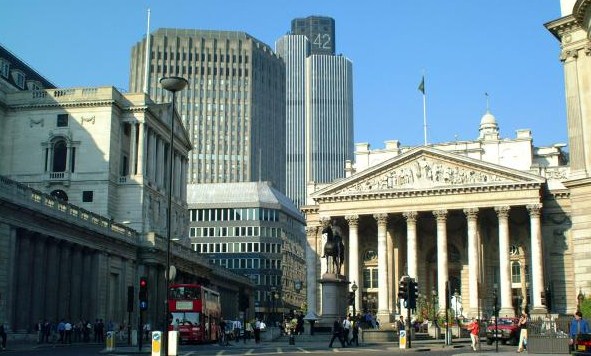Democrat - March-April 2010
Political Kidology
Some pertinent points made by Arther Smelt

City of London
With the prospect of a general election to be held in May (2010), there is an atmosphere of distrust and hostility on the part of the electorate towards politics and politicians. As a result there is a possibility that the turnout at election time may be at an all-time low. Many voters are of the view that voting is a waste of time because there is little difference between the major parties. The allegiance of politicians to their masters in the Square Mile, the speculators and moneygrubbers, make them what they are. An elected dictatorship.
After the election of 1997, Tony Blair talked of a “new dawn” in order to give the impression that under New Labour life would change for the better. Although hope springs eternal, the hardened student of politics capable of factual assessment cannot but be haunted by the knowledge that such histrionics come from the mouths of major party politicians regardless of their professed political leanings.
There is an argument that if voting changed anything it would not be allowed. Recent evidence bears this out. When the European Constitution was concocted and the people of France and Holland voted against it, those honest and transparent politicians changed its name to the Lisbon Treaty and pretended it was a different treaty. This enabled them to disregard the votes of the French and Dutch people. The British people were promised a referendum on the Lisbon Treaty but when it became apparent that there would be an overwhelming vote against, the promise was withdrawn. Ireland was the only country to be allowed a referendum and when the electorate voted against the Lisbon Treaty, they were made to vote again. After millions of Euros were spent on a campaign to frighten the Irish into voting yes, a rerun was engineered. On the other hand the supporters of the no campaign had nothing like the funding or access to the media to put their case. Another example of one-sided so-called democracy.
There are some trades unionists and politicians who profess adherence to and support for proletarian interests but at the same time support EU where the intention is to consolidate the very policies and betting shop economics which have brought about the chaos we experience now.
Feeble excuses have been made that the so-called credit crunch could not be avoided here because it was worldwide. Reality is that the regulatory bodies could not or would not do their job of regulating the excesses and that state of affairs continues today.
EU membership was going to do so many wonderful things. Prevent wars, develop trade, ensure our future prosperity and so on. It has done none of this and we are now witnessing crises in one EU country after another. That wonderful currency the Euro is not as stable as we were led to believe it would be. Our public services are being fragmented by EU directives pursuing the dogma of ‘freeing up for competition’. Unemployment is becoming a serious problem throughout the EU.
Public Private Partnerships, private finance initiatives are being used to privatise the public sector. Over the years lip service has been paid to the mantra of what works best. It is painfully obvious that privatisation of everything in sight is not the answer. Sometimes privatisation could be the best option but government should be honest enough to acknowledge when this is not so.
Where serious illness is concerned it is necessary to arrive at a correct diagnosis in order to treat it. Failure to do so will result in a worsening of the illness and consequences most of us do not want.